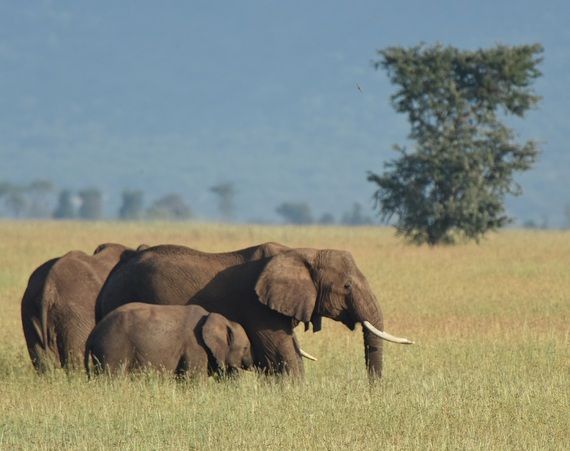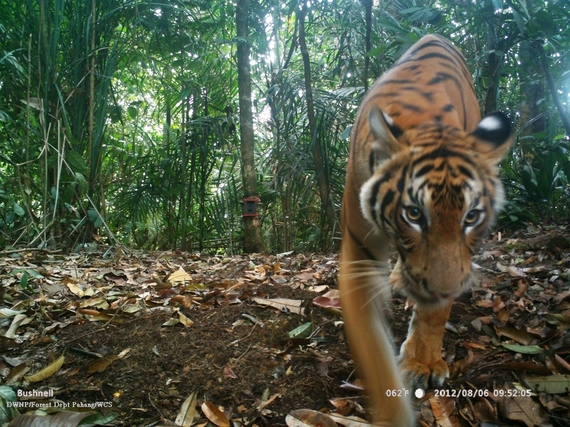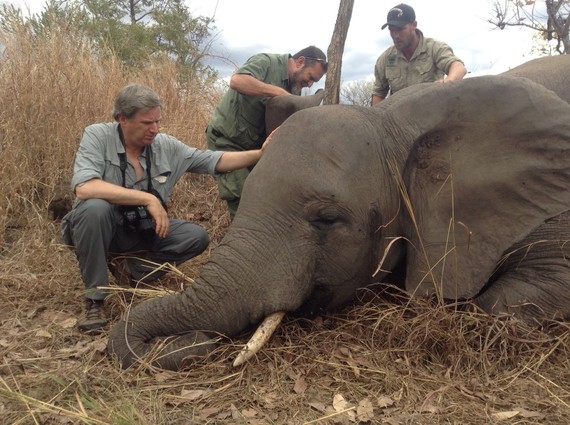Wildlife got another vital defender - the European Union.
The European Commission adopted last week the EU Action Plan against Wildlife Trafficking, a comprehensive strategy that addresses wildlife trafficking within Europe and bolsters the role European nations are taking to squash this crime across the globe.
The very survival of elephants, rhinos, tigers and so many other species is threatened by wildlife trafficking. Poaching and trafficking operations are growing in scale and sophistication, with much of the billions of euros generated financing transnational organized criminal syndicates. The EU is keeping this momentum going and took an important step last week toward eliminating wildlife trafficking that is threatening species worldwide.

Action at a global level is urgently needed to halt the devastating declines in African elephant populations that we've seen in recent years. Photo ©John Delaney.
The world has taken notice of this problem, from US President Barack Obama's National Strategy for Combating Wildlife Trafficking and movement toward a federal ban on ivory trade, to the United Nations' resolution against wildlife trafficking last July, to the Chinese government's signaling of intentions to crack down on illegal wildlife trade. Even Pope Francis has proved to be a strong and outspoken proponent for protection of our planet and its precious wildlife. These are promising developments.
As a major transit point and destination for wildlife trade, the EU needed a coherent approach to how it will play its part in combating this scourge. EU Environment Commissioner Karmenu Vella presented the Action Plan against Wildlife Trafficking, which is designed to aggressively target the criminal networks that have turned wildlife trafficking into a billion euro industry.
The very survival of elephants, rhinos, tigers and so many other species is threatened by wildlife trafficking. Photo ©WCS Malaysia Program.
Specifically, we are pleased that the Action Plan takes a comprehensive approach to tackling the problem by including measures to: reduce the demand for illegal wildlife products; step up enforcement and the fight against organized criminal groups; and substantially increase support to source countries, including much-needed increased financing from EU development aid programs.
We are also pleased to see that some first steps will be taken towards more strictly controlling the ivory trade, where action at a global level is urgently needed to halt the devastating declines in African elephant populations that we've seen in recent years.
WCS is proud to have contributed scientific and technical expertise based on our field conservation programs in nearly 60 countries around the world. In our experience working on the ground for wildlife protection in many developing countries, we have grappled with the often devastating impacts of wildlife trafficking -- both on wildlife and on the local communities whose local livelihoods, governance, and security are undermined.
Cristián Samper with WCS/Niassa Reserve field op team investigating carcass left by poachers. The elephant is believed to have been killed with an AK-47. Photo by Alastair Nelson ©WCS.
I have seen the devastation wrought by wildlife trafficking up close in many of our field sites across the globe. I have also seen the heroic actions of wildlife rangers who are the frontline of defense against the slaughter of beautiful creatures that is enriching criminals and destabilizing communities. The developed world must stand beside those who are doing this dangerous work -- many of whom are lost in the line of duty -- and this is done by supporting them with all available means. The Action Plan adopted last week shows that the EU stands with them.
We are eager and committed to working with the EU and its 28 Member States to put the components of this Action Plan into practice, in order to stop the killing, stop the trafficking, and stop the demand for illegal wildlife products.


